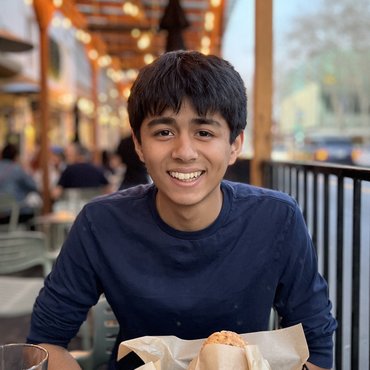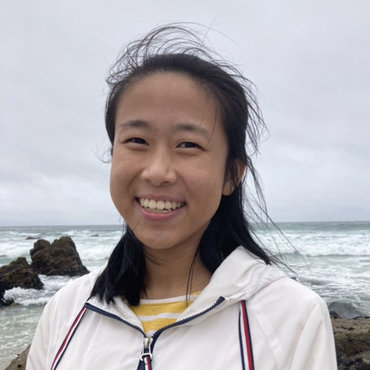
Ruhi Kanwar, ’21
My journey to fighting period poverty in a global pandemic
In a time of a “new normal” driven by the COVID-19 pandemic, we as a global community have had to reckon with acknowledging the resources needed to defend our health. We require masks, social distancing, vaccines, and educational awareness to best fortify ourselves and stave off disease.
Let us take the lessons of the current health crisis and overlay them onto regular practices that affect daily well-being. A key example is period poverty— inadequate access to menstrual hygiene tools and education—an inconspicuous issue, hidden in folds of socialization and taboos, that requires preventative care to preclude illness. Across the globe, there are varied perceptions about the occurrence of periods. These differences carry weight and meaning; the cultural and social constructs surrounding menstrual health influence resource availability and body image.
I undertook a service journey to better reconcile these various perspectives and to add to the reformational framework of reproductive justice supporting the health and acceptance of menstruating individuals.
My work began in summer 2019, when I traveled to Kadapa, India as part of a Cardinal Quarter. My decision to do this stemmed from my South Asian upbringing; I had grown up visiting India with my family and had spent time during high school working to address educational inequity in the country. Alongside two other students, I crossed the Atlantic and drove hundreds of miles through rural suburbs to arrive at Aarti for Girls, a nonprofit working toward gender equity.
At Aarti, I met Sandhya, the founder of the organization, who would prove to be one of my most influential mentors.
Sandhya had established Aarti three decades prior as an orphanage for abandoned young girls. It had grown over time to an integrated network of Aarti Home, a community campus where 120 girls lived; Aarti School, a tuition-free school for low-income children in the greater village area; Abhaya, a women’s advocacy office that lobbied district administration regarding the needs of Kadapa’s women; and Lalitha Corporation, a tailorship company employing local women trying to build independence.
I spent two months working with as many parts of Aarti as I could—to learn, reflect, and better understand the organization’s impact and how it fit into a broader societal mission of empowering women. At Aarti School, I applied for grants to support curricular facilities for biology labs and computer literacy. Through Abhaya, I shadowed local physicians counseling women about abortions. At Lalitha, I interviewed employees to build a documentary with their stories of progress towards autonomous livelihood.
Sunday evenings were a time to wind down with evening dances and yoga alongside the girls at Aarti Home. There was so much to take in and reflect on—how this community was working to address a lot of broader beliefs about femininity, as well as the organization’s growth over time, sustainability, and future trajectory. Sitting on the cement floor, I saw a community of hundreds of people participating in and inching closer to equity.
At the end of the summer, I wrapped up my projects and climbed back into the Aarti van to make the trek back to the United States. However, I didn’t feel a sense of closure; because of the way my work and relationships had progressed, I saw larger potential ahead.
That fall quarter, I sat in biology lectures and took in cell culture readings through a new lens. My worldview had been altered. My vision about what needed to change had shifted. I could no longer simply perform genetic assays of cancer growth; I thought about how they could provide insight for the breast cancer patients I had met in Kadapa. I constantly thought about how I could leverage my scientific background for broader issues—especially for women and other minoritized groups. It was exciting to perceive my work through a lens of greater purpose.
I soon joined the female, gender, and sexuality studies (FGSS) department at Stanford to learn as much as I could about intersectionality, socialization, and sex physiology. My FGSS minor allowed me to grapple with global health crises affecting women, talk to OB-GYNs about the politicized arena of gender medicine, and connect with professors who had dedicated their lives and work to these issues. It empowered me to ideate on future initiatives I could establish in alliance with communities like Aarti’s.
Meanwhile, conversations with faculty mentors and Aarti staff turned to the issue of reproductive justice, which intersects with both health and gender—specifically, we investigated difficultiesrelated to menstruation. After conducting a community health survey in Kadapa, we found the presence of pervasive cultural stigmas, lack of regular pad replacement among sanitary pad users, inconsistent handwashing practices, high presence of rag use, and a common practice of uterus removal prior to the age of 40. The need for education and menstrual resources in the village was high.
I realized that, with the support of my community partners, resources, and training, I could develop a public health intervention to support menstruating individuals in Kadapa. The Donald A. Strauss Foundation empowered me to work toward this reality in March 2020, when the foundation awarded me a $15,000 grant for my project. With this grant, the journey to reduce period poverty in Kadapa began.
My project, “MustEducate in Reproductive Health,” established a manufacturing enterprise that employs five women from low-income backgrounds to produce sanitary pads. They manufacture 45,000 pads per month, which serves approximately 2,900 women (including 130 young women at Aarti). Under a government program, pads are purchased from Aarti for five rupees (about seven cents) per pad and sold for one rupee each in low-income communities.
The second major component of my project was establishing a curriculum for Aarti School. In partnership with Stanford’s FGSS department and UNICEF in Andhra Pradesh, I developed a culturally sensitive curriculum about embracing periods, menstrual hygiene, cultural acceptance, and menstruation physiology. The curriculum was shared with teachers at Aarti School through training sessions and then implemented bi-monthly. I was able to facilitate and oversee the sessions virtually as teachers first taught college women and then expanded to students in eighth grade and up. At present, 80 students are active and continuing through the 28-workshop program.
The start of my project faced a lot of uncertainty due to the pandemic. Based on feedback from locals, officials, and Aarti members, as well as the funding needs we identified, we reallocated efforts and spending toward stitching over 1,000 masks and producing 500 sanitation kits containing bath soap, laundry detergent, and buckets that were distributed to Kadapa’s low-income areas to prevent the risk of COVID-19 spread through communal showers. However, there was overarching consensus about moving forward with the sanitary pad project, so we made the workshops virtual and assembled the machine in a highly sterile environment.
This journey allowed me to expand my work as a social activist. I was given a platform and mentorship that allowed me to address issues on a greater scale with potential for broader impact. Given the scope of the issue—the hundreds of girls and women our program supported, the many neighboring communities in need of similar interventions, and the future infrastructure and policies required for broader change—I realized that this work needed its own committed body. Empowering women and communities would require a dedicated network of reproductive health advocates rather than an extension of my previous education-based nonprofit.
Building on the work of MustEducate, I founded Boon Blood, an initiative to advance reproductive health justice, empower menstruating individuals, and propel cultural shifts within society at large. I established the organization as an Omprakash Partner—a global nonprofit network of social impact organizations, volunteers, and donors—through which I have been able to acquire volunteers and funding for further projects. Boon Blood’s future work will include expanding the hygiene curriculum to Kadapa’s public; developing a menstrual health documentary; deploying more sanitary pad units; hosting reproductive health workshops; promoting LGBTQ+ and male menstruation inclusivity; and legal and educational reform in the United States.
Looking back on how much I have learned and grown to understand about the issues and cultures surrounding my project, I have much more confidence in my convictions and future initiatives. For that, I will forever be grateful.
Today, I see a way to bring a louder voice and larger networks to reproductive health justice; to fold community-based reform into broader efforts; and to empower and connect individuals with similar passions to ripple change outward. My partners and I are reflecting on perceptions and resource limitations related to the menstruation process to try and better understand them. It will take time to grow into an appreciation of this facet of who we are and perhaps decades to overcome the challenges we face in this work. But we must keep moving forward.


